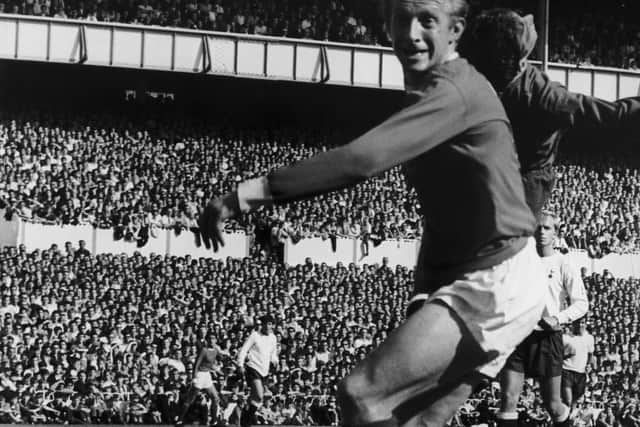Denis Law diagnosis should force football to ask hard questions - Martyn McLaughlin
An in-swinging corner from Jimmy Johnstone veered towards the stalwarts of an England defence that would, just a few months later, help their nation to World Cup glory.
Nestled amongst them, however, was Law, a player who stood just 5ft 9in in his socks. Undeterred, he rose above them all like a salmon to power the ball into the back of the net.
Advertisement
Hide AdAdvertisement
Hide AdThe game may have ended in defeat for Scotland, but the footage is worth its weight in gold to those who cherish the national team’s halcyon years, and the only Scot ever to have won the Ballon d’Or. Sadly, such moments come at a price.
Law, one of the finest footballers in Scotland’s and Manchester United’s history, announced on Thursday he has Alzheimer’s and vascular dementia, becoming the latest in a long line of former players to reveal they are suffering from the degenerative brain disease.
Only last year, Law revealed he suffered from headaches after heading heavy balls during his early career at Huddersfield Town. At this stage, it is impossible to say whether repeated heading contributed to his diagnosis, but the fact one of the most revered forwards in the sport’s history has dementia can, and should, bring renewed focus to the issue.
Research by the University of Glasgow has led the way in identifying a significant increase in the incidence of neurodegenerative diseases in former professional players, but such work is relatively new and there is much to learn, particularly around specific causative factors.


The Scottish Football Association’s revised guidelines now recommend that no primary aged children should practice heading, with a graduated approach for older children. Coupled with enhanced safety protocols, they are designed to better protect the welfare of players.
Even so, it seems prescient to ask whether such measures are sufficient, and whether the game Law and so many others love could – or should – continue without heading. The idea may be anathema to those who rejoice in the sport’s physicality, but if it could extend the lives of those we cheer on from the terraces, it is worth considering.
A message from the editor:
Thank you for reading this article. We're more reliant on your support than ever as the shift in consumer habits brought about by coronavirus impacts our advertisers. If you haven't already, please consider supporting our trusted, fact-checked journalism by taking out a digital subscription.
Comments
Want to join the conversation? Please or to comment on this article.
